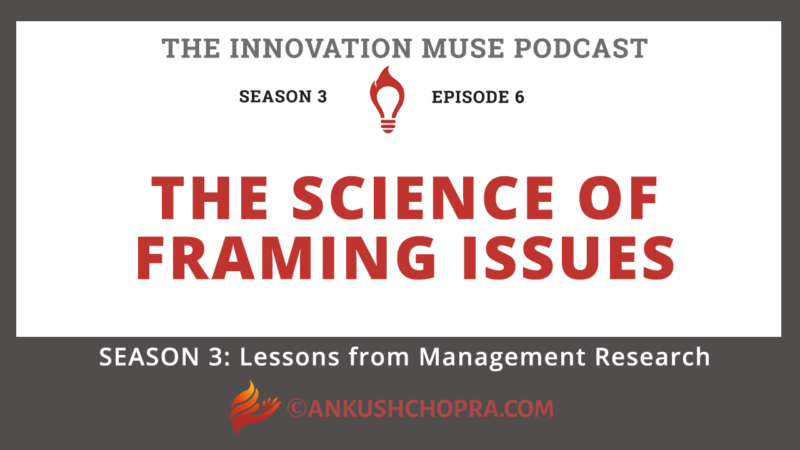We know that our natural thinking methods are far from perfect. In fact, our natural thinking styles also make us less than strategic. But did you know that you are most likely to make mistakes in your decision making when undertaking probabilistic reasoning? In other words, when the element of uncertainty enters the picture you are prone to major mistakes.
This video explains this decision making mistake in more detail.
[embedyt] https://www.youtube.com/watch?v=hOoOJ_70ZUY[/embedyt]
The Podcast
In the video, I referred to a podcast episode which is available here. You can also listen to it at the end of this article below.
Transcript
If you would rather read than watch the video, here is the transcript:
Hi, I am Ankush Chopra.
Did you know that we make massive mistakes in evaluating, judging and making decisions when we enter the domain of probabilistic reasoning? In other words, when an element of uncertainty enters the picture, we are prone to making big mistakes. Let’s find out how.
When thousands of people were asked to make a choice between
1. Giving away $50
Or
2. Tossing a coin and giving zero if they won but giving $100 if they lost
Most people decided to toss the coin.
But they made a mistake here. The expected value of both the choices is the same. In both cases, you stand to lose $50 on expected value basis.
This happens because instinctively people believe that when they toss the coin the probability of winning that toss is more than 50%. That is not what people calculate but they deeply believe to be true. We know it is false.
On the other hand, when people are asked to make the opposite choice they do something even more surprising.
When asked to make a choice between
Option 1: Take $50
Or
Option 2: toss a coin and get $100 if they won but 0 if they lose
Most people choose to take the $50
And again here they assume the probability of losing eh coin toss to be greater than 0.5
That again is not true.
What this tells us is that when the element of probability entry the picture people’s behavior change in ways that are not rational.
And this is at the heart of how people make mistakes in their probability reasoning.
This finding comes from the research done by Kahneman and Tversky. It has been widely replicated and shown to work in a large set of circumstances.
I connected this decision flaw with the innovation decision making in my book the dark side of innovation. There I showed that when forced to make a choice between a sure loss from embracing a profit destroying innovation and a probabilistic loss from avoiding the innovation, firms behave as deer in the headlights. They hesitate and underestimate the probability of losing to a profit destroying innovation.
Learn all about probabilistic reasoning in my latest podcast linked below.






Please note: I reserve the right to delete comments that are offensive, or off-topic. If in doubt, read my Comments Policy.